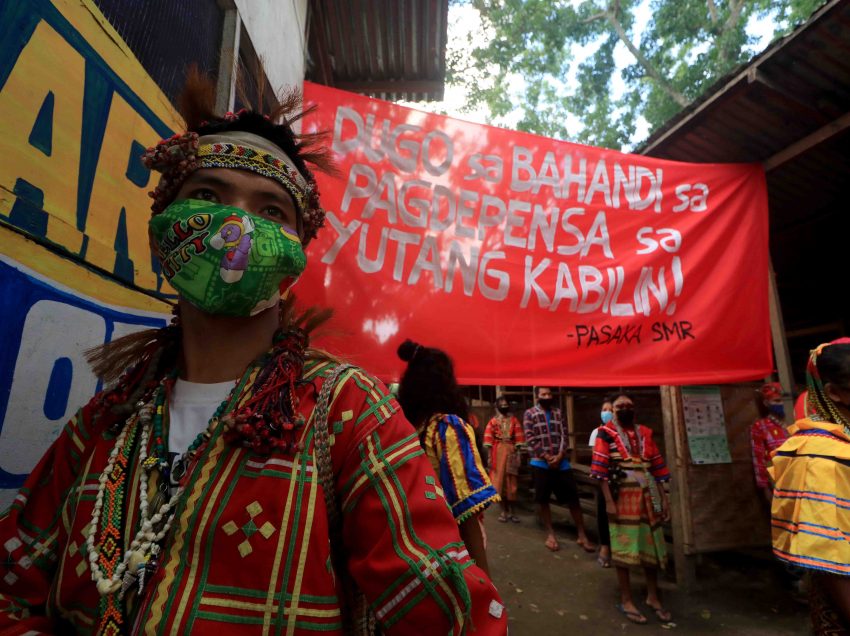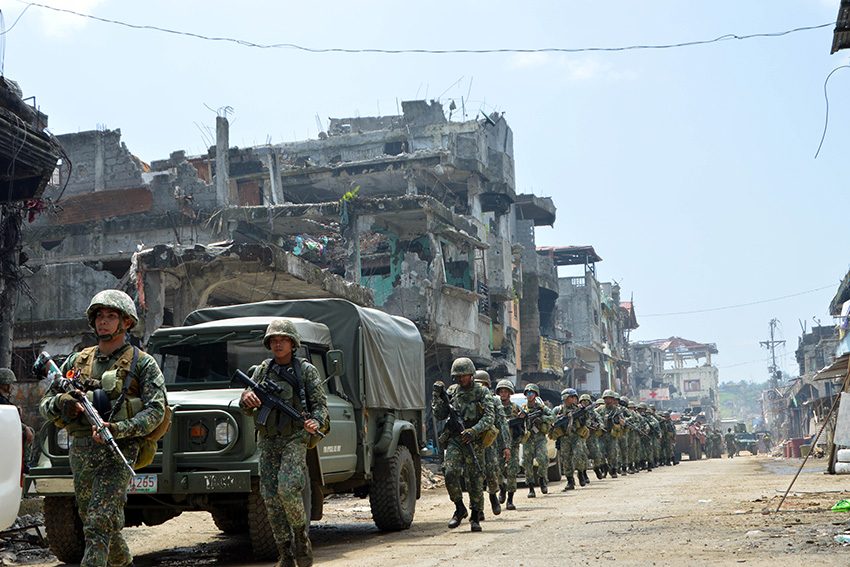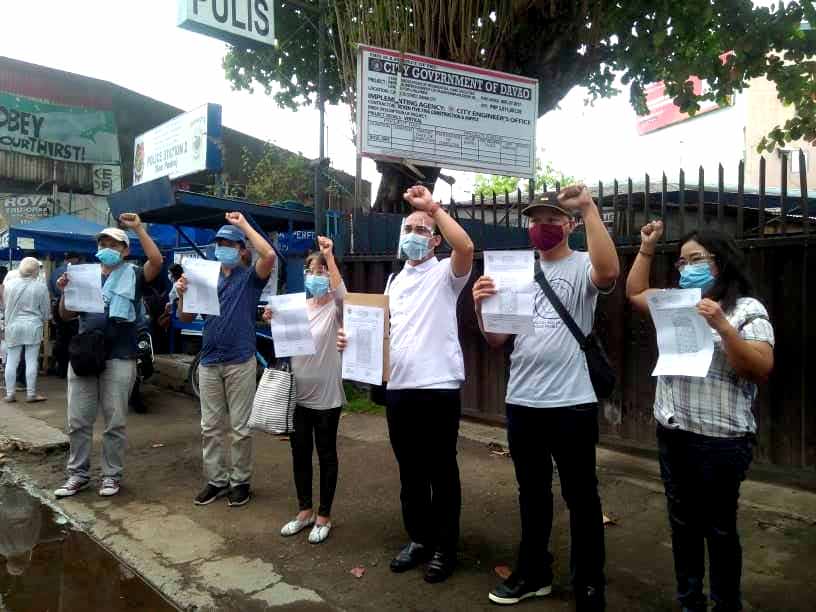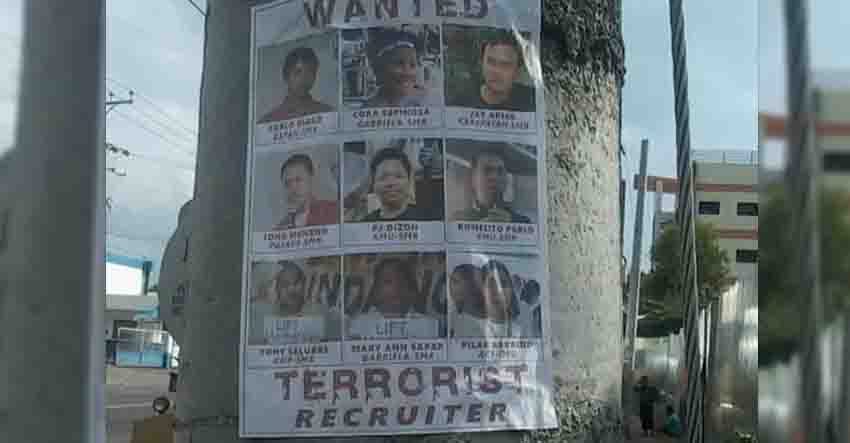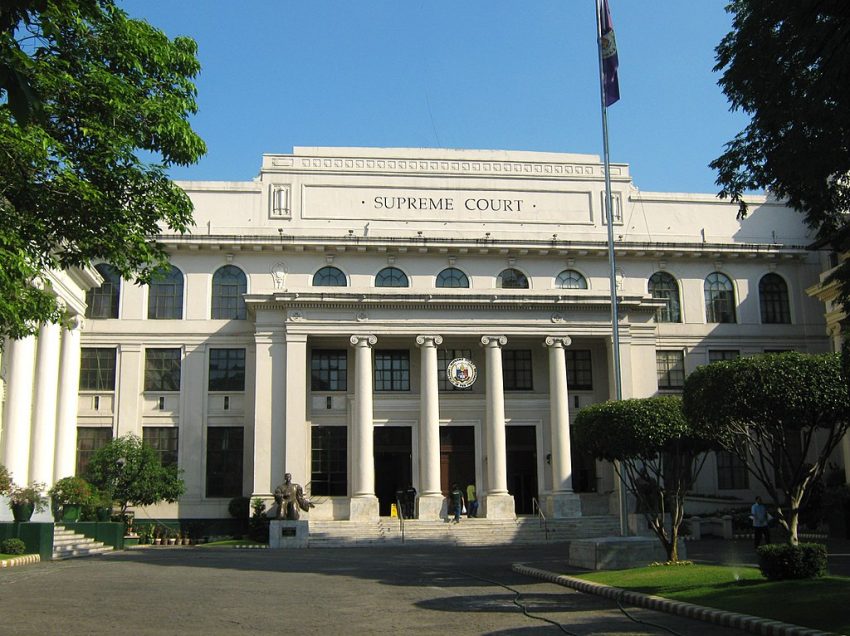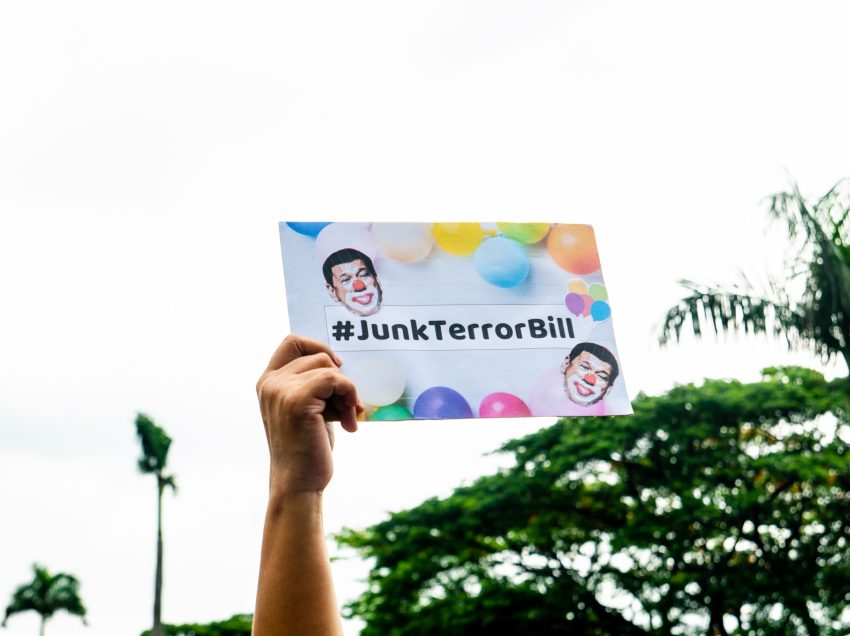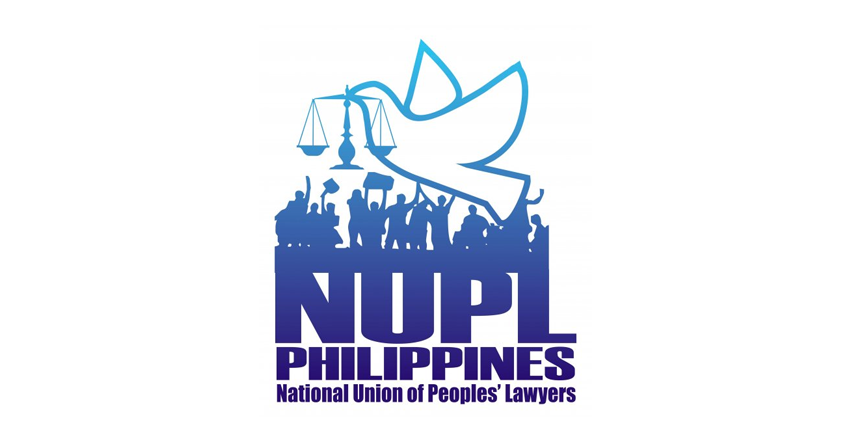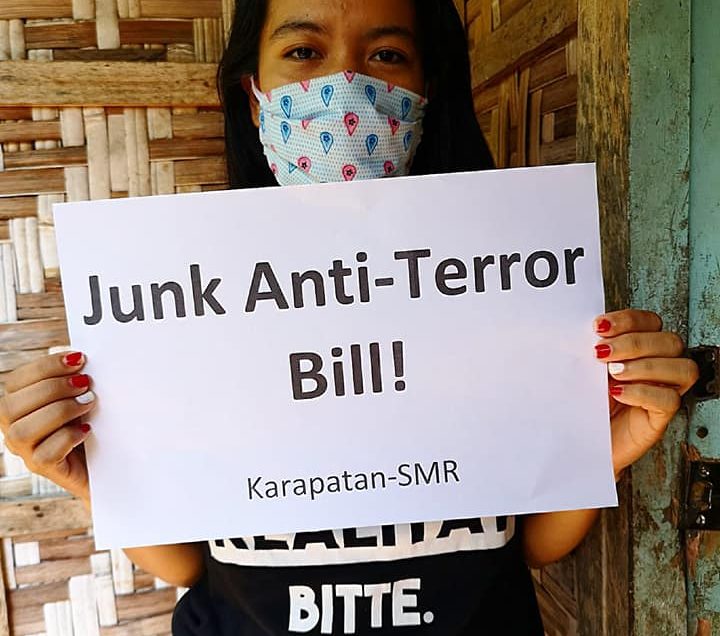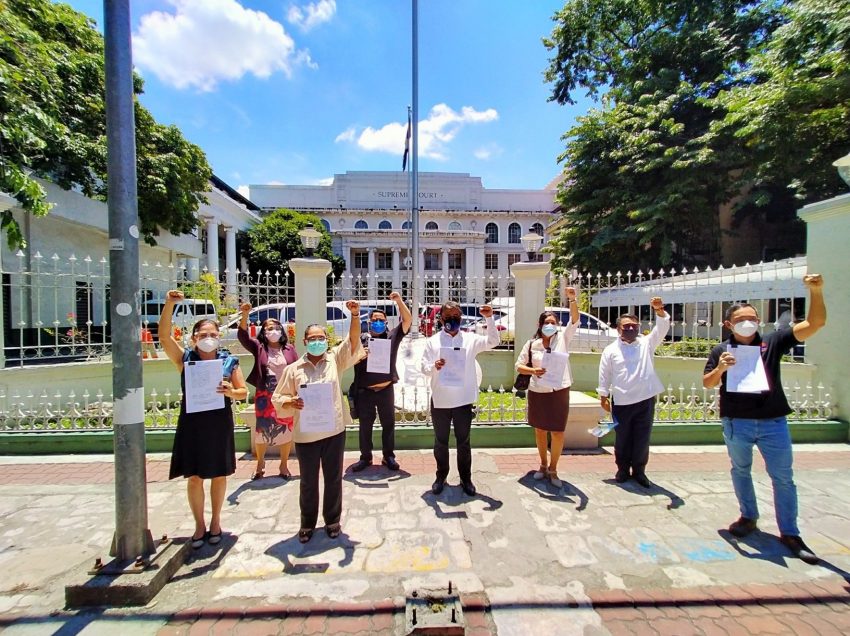Individuals and a group from Mindanao who has experienced rights abuses and other forms of harassment are petitioning the Supreme Court to scrap Republic Act 11479 or the Anti-Terrorism Act (ATA) of 2020.
On Monday’s State of the Nation Address, President Rodrigo Duterte harped back on criticisms on his declaration of Martial Law in Mindanao, claiming no human rights violations happened in that period.
Leaders of progressive groups filed complaints to the police and to the Commission on Human Rights over the spread of posters tagging them as “terrorist recruiters.”
Progressive groups cried foul over posters spreading in different areas of the city this week that tagged their leaders as terrorists, as the controversial Anti-Terrorism Act (ATA) takes effect this week.
Former Supreme Court justices Antonio Carpio and Conchita Carpio-Morales returned to the High Court as part of the 11th group that challenge the legality of the Anti-Terrorism Law.
The Catholic Bishops Conference of the Philippines (CBCP) issued a strong pastoral letter and call to prayer Sunday on their concern on human rights in the Philippines highlighted by the signing of the Anti-Terrorism Act.
Leaders of various progressive groups led by Bagong Alyansang Makabayan (Bayan), religious and civil libertarians, and members of the academe filed the 10th petition against the anti-terror law (ATL) on Sunday, July 19.
Petitions against the Anti-Terrorism Act of 2020 have grown in numbers and now totals seven since it was approved into law.
Various groups in Northern Mindanao expressed strong opposition to the Anti-Terrorism Act 2020 which they said will trample human rights as the country grapples on the coronavirus (Covid-19) pandemic.
After the signing of the anti-terrorism law, the battle shifts to the High Court as different groups started filing petitions questioning the legality of the contentious law.

